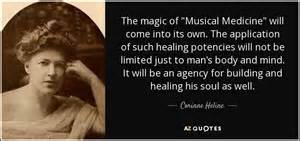A Quote by Paul Virilio
I am very interested in and that is what Sun Tzu in his ancient Chinese text calls The Art of War.
Related Quotes
The influence of Sun Tzu on other North Vietnamese military strategists is harder to answer. Certainly many of the key leaders in Hanoi were aware of Sun Tzu and made use of his ideas - Vo Nguyen Giap applied many of these ideas in seeking out weak elements in the enemy's defenses, as did Truong Chinh, whose famous treatise, The Resistance Will Win (1947), cited the ideas of Mao Zedong as a model for the North Vietnamese to follow.
What is the influence of Sun Tzu in the world today? Perhaps there are others who are better qualified than I to speculate about that question. Sun Tzu's ideas, as expressed in his famous treatise, have undoubtedly influenced the nature of many revolutionary movements that are arrayed against more powerful forces, and in some cases - as in Vietnam - have played a useful role in bringing about success. But such ideas are always in conflict with other deepseated emotional factors, which propel dissident movements into the rampant use of terrorism and other forms of anarchistic struggle.
With Orff it is text, text, text - the music always subordinate. Not so with me. In 'Magnificat,' the text is important, but in some places I'm writing just music and not caring about text. Sometimes I'm using extremely complicated polyphony where the text is completely buried. So no, I am not another Orff, and I'm not primitive.
The fable of Christ and his twelve apostles is a parody of the sun and the twelve signs of the Zodiac, copied from the ancient religions of the Eastern world. Every thing told of Christ has reference to the sun. His reported resurrection is at sunrise, and that on the first day of the week; that is, on the day anciently dedicated to the sun, and from thence called Sunday.
There are photographers who push for war because they make stories. They search for a Chinese who has a more Chinese are than the others and they end up finding one. They have him take a typically Chinese pose and surround him with chinoiseries. What have they captured on their film? A Chinese? Definitely not: the idea of the Chinese.
I am not a historian, but I find myself being more and more fascinated by history and now I find myself reading more and more about history. I am very interested in Napoleon, at the present: I'm very interested in battles, in wars, in Gallipoli, the First World War and so on, and I think that as I age I am becoming more and more historical. I certainly wasn't at all in my early twenties.
Art makes people do a double take and then, if they're looking at the picture, maybe they'll read the text under it that says, "Come to Union Square, For Anti-War Meeting Friday." I've been operating that way ever since - that art is a means to an end rather than simply an end in itself. In art school we're always taught that art is an end in itself - art for art's sake, expressing yourself, and that that's enough.




































